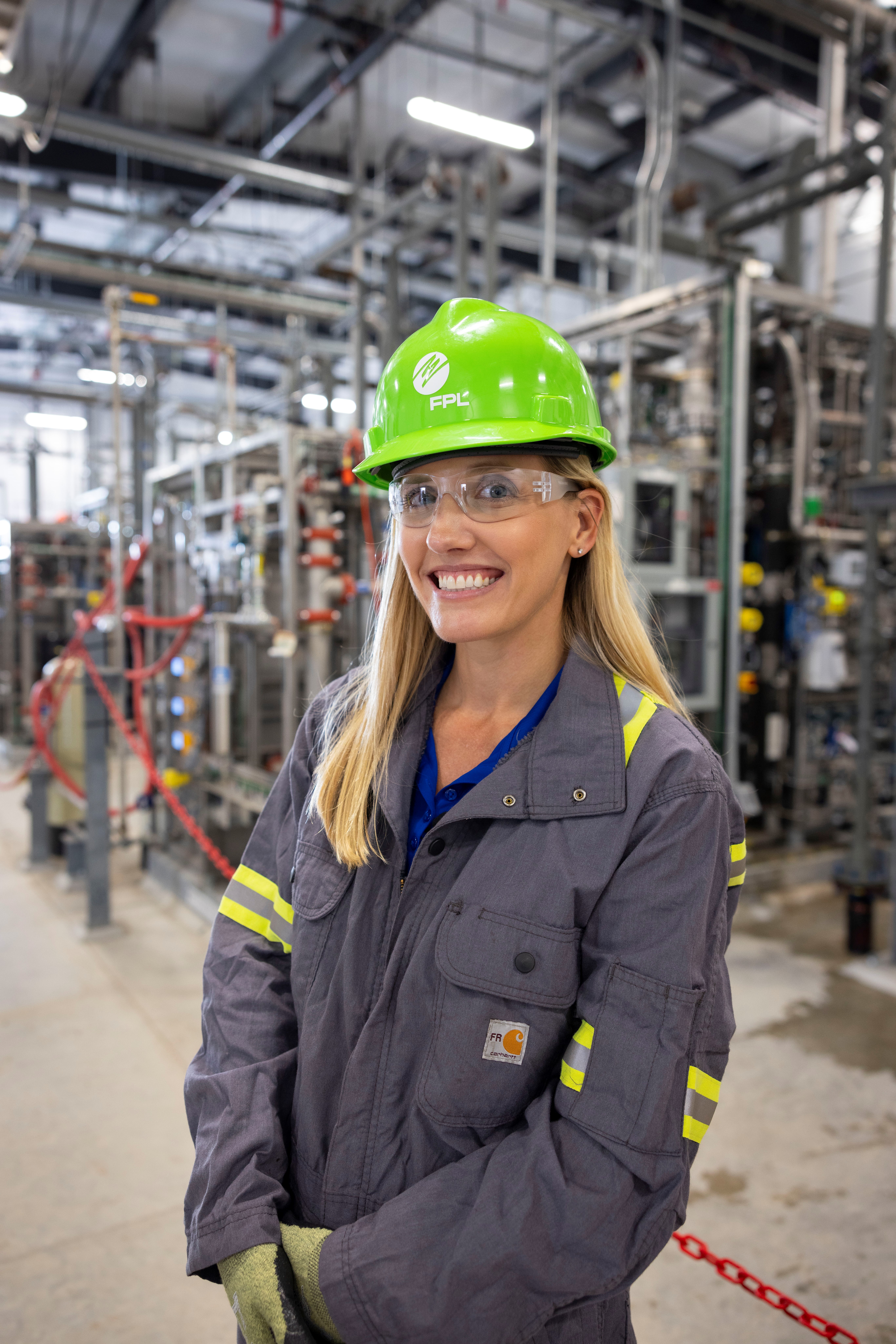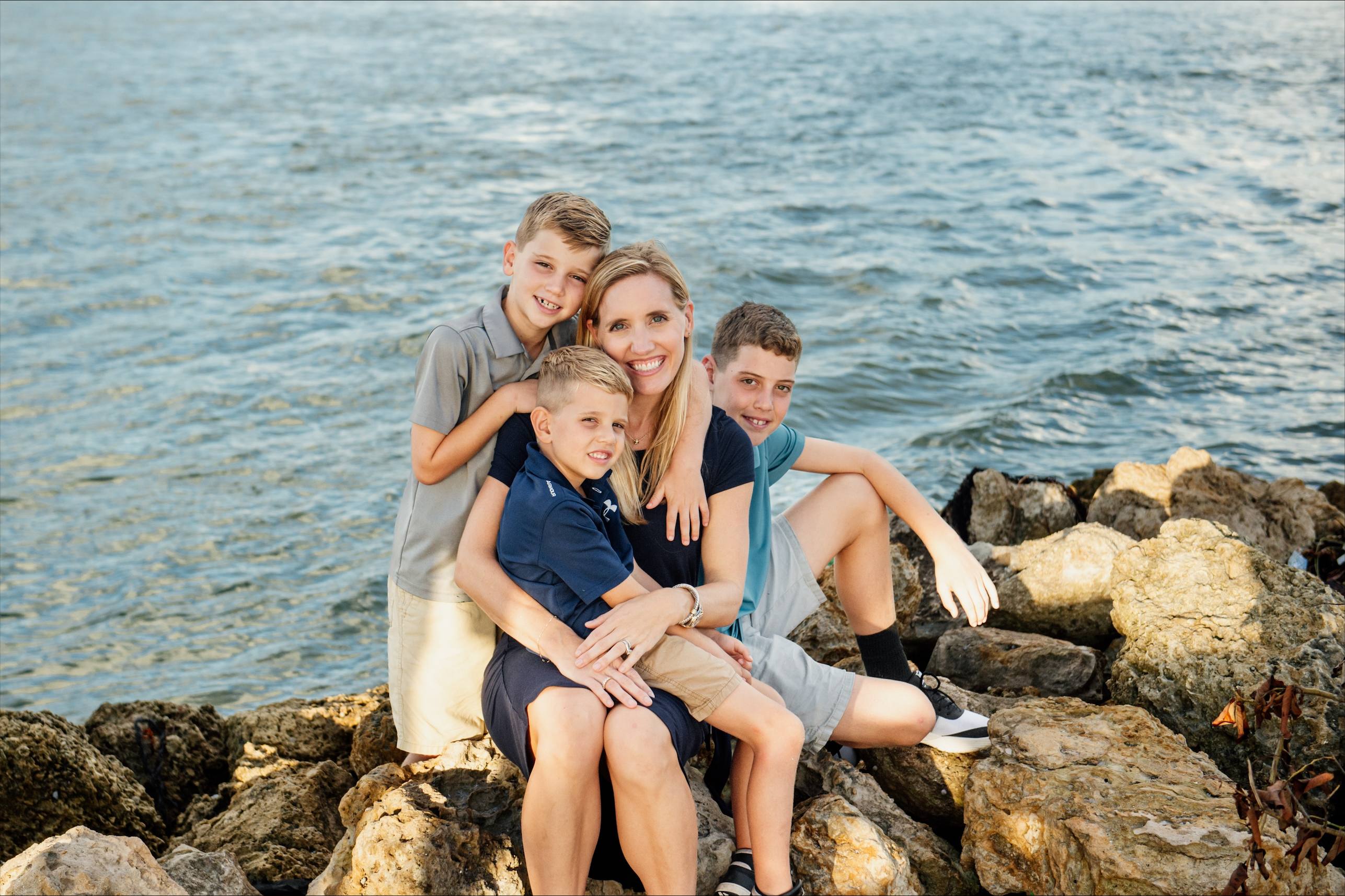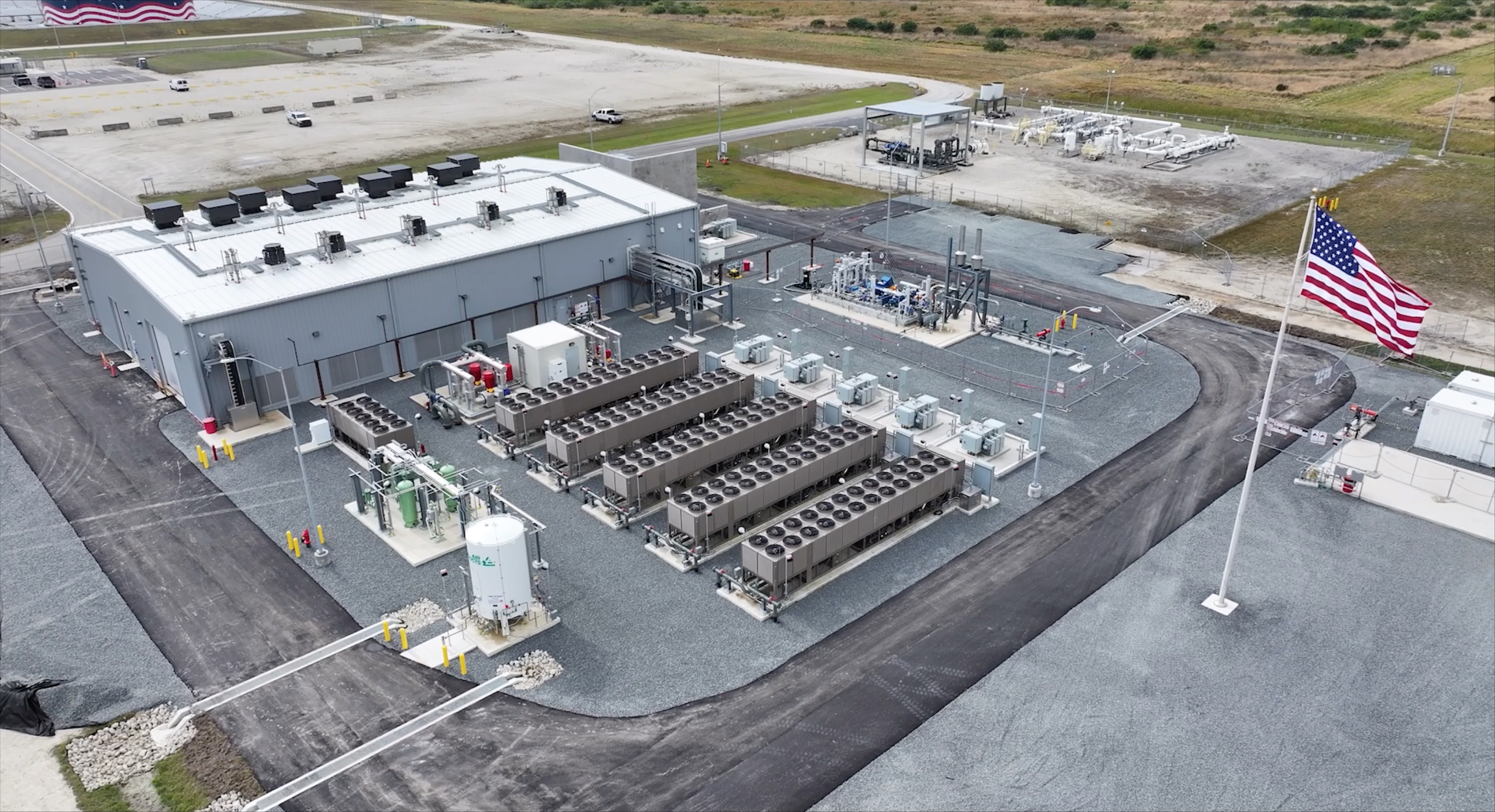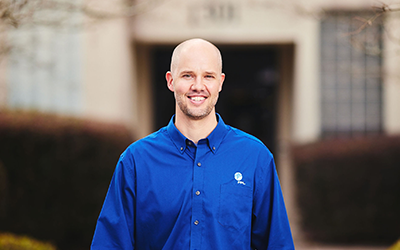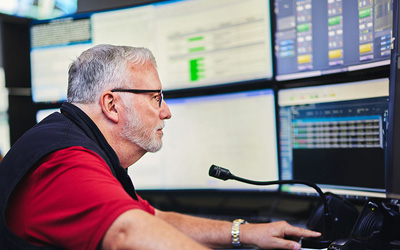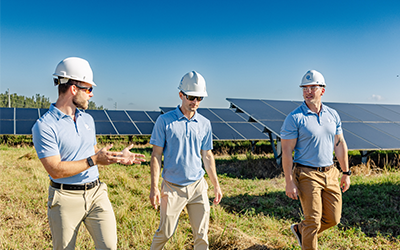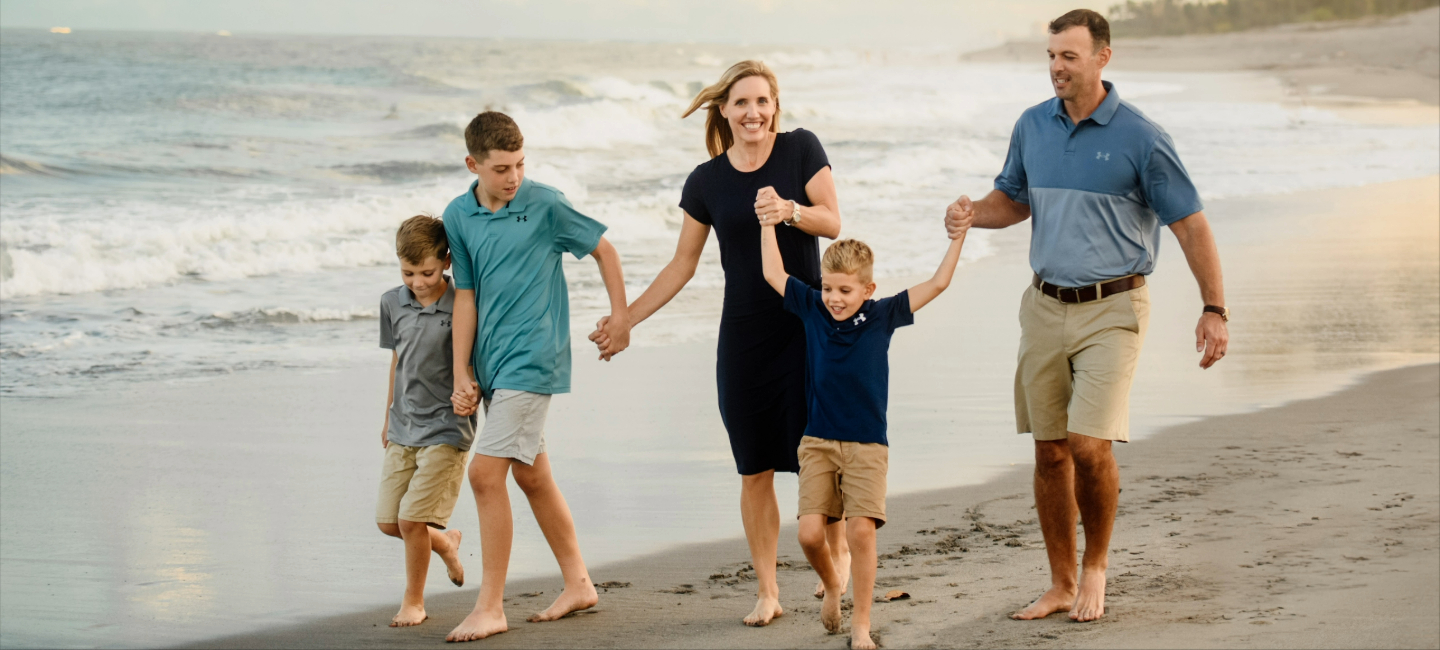
JUNO BEACH, Fla. - Beach chairs, sandcastle molds, shovels and skim boards rattled in the trunk of the Cole family’s car as they cruised north along I-95 in Palm Beach County toward their cherished Saturday destination.
The family of five, made up of two engineer parents, Stevany and Blake, and their three energetic boys, eagerly anticipated the adventures awaiting them on the shores of Juno Beach.
As they neared the coast, Hagan, the middle son, pressed his face against the car window, anticipating what’s just down the highway. Like clockwork, his eyes widened, and he exclaimed, “Mommy built that!” while pointing to the side of the highway.
To the left unfolds Florida Power & Light Company’s (FPL) EVolution Hub, a testament to Cole’s engineering endeavors as a renewable energy developer. The innovative project comprises a solar array, stationary battery and two mobile EV trailers, helping the company find new ways to satisfy customer energy needs using Florida sunshine.
From navigating the complexities of permitting and approvals to supporting the project’s engineering and construction, she has played a key role in the hub's journey from start to finish.
“That’s right,” Cole said with a smile as she looked back from the passenger seat to her son gazing out the backseat window in wonder.
While his older brother, Brayden, immersed himself in a world of sporting trends and game highlights, Hagan's curiosity led him down a different path. His 8-year-old mind hungers for answers as to how everyday things work.
“He recently had a school project where he presented in front of his class what I do for work,” shared Cole, who sent him off to school with a bright blue FPL polo. “He told all of his classmates about my efforts to bring FPL’s Cavendish NextGen Hydrogen Hub online.”
The FPL Cavendish NextGen Hydrogen Hub started to produce hydrogen last fall and is officially operating, making it the first project of its kind in Florida. This new project will help the company explore clean hydrogen to offset the use of natural gas to run a traditional power plant.
“Piloting clean fuels like hydrogen, made with Florida’s most abundant resource, the sun, has the potential to reduce the amount of fuel we have to buy to generate electricity, helping the company keep bills as low as possible for customers,” said FPL Vice President of Development Tim Oliver.
The hydrogen hub draws solar power from a nearby FPL power plant to produce hydrogen onsite.
“We’ve been on a journey to cleaner and more cost-effective fuels, moving from oil to natural gas and now we’re exploring how to move from natural gas to carbon-free,” Cole said, referring to FPL’s power plant modernizations over the last two decades which have effectively slashed air emissions and saved customers billions of dollars in avoided fuel costs.
The FPL Cavendish NextGen Hydrogen Hub is the latest example of how FPL is evolving how it serves customers, developing a more modern, stronger and cleaner energy grid.
“It’s always interesting looking back on where I started my career to now being here, making history in Florida,” she said.
Eight years ago, Cole transitioned from working at a papermill harvesting trees for consumer products to helping build a more resilient and cost-effective grid with FPL. Cole is proud to be part of something greater than herself.
“Eventually my generation will be gone. Then, my children will be the ones left with their own kids,” she said. “I can only hope to leave the planet a better place for them.”
Cole’s commitment to building a brighter future for the next generation extends beyond career ambitions, intertwining with her personal life.
“Teaching my boys to take care of the Earth is important in our family,” said Cole. “When we go to the beach, we get a bucket to pick up trash while we’re looking for shells.”
As their hands sift through the sand, collecting shells of all colors, shapes and sizes, they simultaneously gather littered bottles and wrappers. Each piece of trash retrieved becomes a small but significant step, echoing the larger journey toward sustainability.
